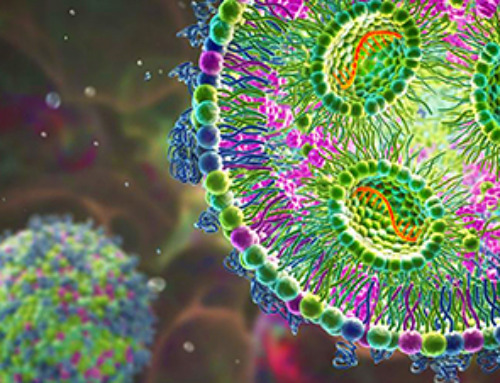As we plunge head-on into the game-changing dynamic of general artificial intelligence, observers are weighing in on just how huge an impact it will have on global societies. Will it drive explosive economic growth as some economists project, or are such claims unrealistically optimistic?
Two researchers from Epoch, a research group evaluating the progression of artificial intelligence and its potential impacts, decided to explore arguments for and against the likelihood that innovation ushered in by AI will lead to explosive growth comparable to the Industrial Revolution of the 18th and 19th centuries.
The seven members of the Epoch team have backgrounds in machine learning, statistics, economics, forecasting, physics and software engineering.
While they concluded that “explosive growth seems plausible,” they were quick to add that “high confidence” in rapid development “seems currently unwarranted.”
Epoch Associate Director Tamay Besiroglu and staff researcher Ege Erdil have explained their conclusions in a paper, “Explosive Growth from AI Automation: A Review of the Arguments,” published Sept. 20 on the preprint server arXiv.
They stated that many observers believe AI can drive explosive growth of “an order of magnitude faster than current rates” and lead to “super-exponential growth.” But they caution that there will be obstacles.
First, governmental regulations will likely be swift and possibly extreme as concerns grow over ethics, privacy and risk.
“Fear or reluctance regarding powerful new technologies, concerns over… intellectual property leading to a shortage of training data and unwillingness to let AI systems perform tasks that can be automated without human supervision,” due to legal concerns are factors that may tamp down the economic impact of AI, they said.
But after weighing the concerns against potential benefits of AI, the authors conclude it is “unlikely that regulation of the training and deployment of AI will block explosive growth.”
“The potential value of AI deployment could be immense,” the authors said, “with the prospect of increasing output by several orders of magnitude. Consequently, this would likely create formidable disincentives for imposing restrictions.”
Another potential obstacle to the rapid adoption of AI applications is fear of their potential unreliability. They cite as an example the tendency of AI to “hallucinate,” or generate responses that are blatantly false. A recent study found a chatbot sourced its information to research papers that in fact did not exist.
Here, again, the researchers said that improvements in reliability and incorporating safety measures such as human oversight will eventually lead to greater trust in AI operations.
“Overall, our assessment is that this argument is most likely not going to block explosive growth, but its influence cannot be ruled out,” they said.
They also ruled out other obstacles as major factors deterring the acceptance of AI, such as human preferences for human-produced goods and physical bottlenecks in production.
In the end, their outlook for explosive growth may best be described as “cautious optimism.”
“We conclude that explosive growth seems plausible with AI capable of broadly substituting for human labor,” they said.
News
COVID-19 still claims more than 100,000 US lives each year
Centers for Disease Control and Prevention researchers report national estimates of 43.6 million COVID-19-associated illnesses and 101,300 deaths in the US during October 2022 to September 2023, plus 33.0 million illnesses and 100,800 deaths [...]
Nanomedicine in 2026: Experts Predict the Year Ahead
Progress in nanomedicine is almost as fast as the science is small. Over the last year, we've seen an abundance of headlines covering medical R&D at the nanoscale: polymer-coated nanoparticles targeting ovarian cancer, Albumin recruiting nanoparticles for [...]
Lipid nanoparticles could unlock access for millions of autoimmune patients
Capstan Therapeutics scientists demonstrate that lipid nanoparticles can engineer CAR T cells within the body without laboratory cell manufacturing and ex vivo expansion. The method using targeted lipid nanoparticles (tLNPs) is designed to deliver [...]
The Brain’s Strange Way of Computing Could Explain Consciousness
Consciousness may emerge not from code, but from the way living brains physically compute. Discussions about consciousness often stall between two deeply rooted viewpoints. One is computational functionalism, which holds that cognition can be [...]
First breathing ‘lung-on-chip’ developed using genetically identical cells
Researchers at the Francis Crick Institute and AlveoliX have developed the first human lung-on-chip model using stem cells taken from only one person. These chips simulate breathing motions and lung disease in an individual, [...]
Cell Membranes May Act Like Tiny Power Generators
Living cells may generate electricity through the natural motion of their membranes. These fast electrical signals could play a role in how cells communicate and sense their surroundings. Scientists have proposed a new theoretical [...]
This Viral RNA Structure Could Lead to a Universal Antiviral Drug
Researchers identify a shared RNA-protein interaction that could lead to broad-spectrum antiviral treatments for enteroviruses. A new study from the University of Maryland, Baltimore County (UMBC), published in Nature Communications, explains how enteroviruses begin reproducing [...]
New study suggests a way to rejuvenate the immune system
Stimulating the liver to produce some of the signals of the thymus can reverse age-related declines in T-cell populations and enhance response to vaccination. As people age, their immune system function declines. T cell [...]
Nerve Damage Can Disrupt Immunity Across the Entire Body
A single nerve injury can quietly reshape the immune system across the entire body. Preclinical research from McGill University suggests that nerve injuries may lead to long-lasting changes in the immune system, and these [...]
Fake Science Is Growing Faster Than Legitimate Research, New Study Warns
New research reveals organized networks linking paper mills, intermediaries, and compromised academic journals Organized scientific fraud is becoming increasingly common, ranging from fabricated research to the buying and selling of authorship and citations, according [...]
Scientists Unlock a New Way to Hear the Brain’s Hidden Language
Scientists can finally hear the brain’s quietest messages—unlocking the hidden code behind how neurons think, decide, and remember. Scientists have created a new protein that can capture the incoming chemical signals received by brain [...]
Does being infected or vaccinated first influence COVID-19 immunity?
A new study analyzing the immune response to COVID-19 in a Catalan cohort of health workers sheds light on an important question: does it matter whether a person was first infected or first vaccinated? [...]
We May Never Know if AI Is Conscious, Says Cambridge Philosopher
As claims about conscious AI grow louder, a Cambridge philosopher argues that we lack the evidence to know whether machines can truly be conscious, let alone morally significant. A philosopher at the University of [...]
AI Helped Scientists Stop a Virus With One Tiny Change
Using AI, researchers identified one tiny molecular interaction that viruses need to infect cells. Disrupting it stopped the virus before infection could begin. Washington State University scientists have uncovered a method to interfere with a key [...]
Deadly Hospital Fungus May Finally Have a Weakness
A deadly, drug-resistant hospital fungus may finally have a weakness—and scientists think they’ve found it. Researchers have identified a genetic process that could open the door to new treatments for a dangerous fungal infection [...]
Fever-Proof Bird Flu Variant Could Fuel the Next Pandemic
Bird flu viruses present a significant risk to humans because they can continue replicating at temperatures higher than a typical fever. Fever is one of the body’s main tools for slowing or stopping viral [...]





















